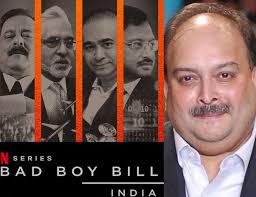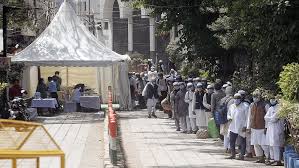Feature
Nursery admissions: Delhi government files appeal against HC order

New Delhi: The AAP government in Delhi today moved Delhi High Court lodging an appeal challenging its order of restoring the management quota for nursery admissions in private unaided schools in the national capital.
A division bench of Chief Justice G. Rohini and Justice Jayant Nath agreed to hear the appeal of Delhi’s Aam Aadmi Party government on Wednesday.
A bench of Justice Manmohan on February 4, in an interim order, put on hold the city government’s January 6 circular scrapping 62 criteria, including the management quota, but accepted 11 criteria proposed by the private schools’ association, saying some of the 62 criteria fixed for private schools for nursery admissions were “untenable”.
The court restored the management quota, saying the private unaided private schools are “entitled to full autonomy” in administration.
The government filing the appeal before division bench said the practice of management quota was “deleterious” for school education’s development in Delhi and hence “must be stopped” and also it was “wholly non-transparent and susceptible to misuse”.
Upholding the autonomy of private unaided schools, the court said: “Promoters of a school who make investment at their own personal risk are entitled to full autonomy in administration, including the right to admit students”, and held that the government’s order infringed on their autonomy and students’ rights.
“The private unaided schools have maximum autonomy in day-to-day administration, including the right to admit students,” it said but asked the AAP government to take action against erring private schools which were “demanding money” from parents to admit kids under the management quota.
The January 6 order was passed “without any authority under law” or without approval of Lt. Governor Najeeb Jung, and was in direct conflict with the 2007 order (after recommendations of the expert Ganguly Committee) issued by the Lt. Governor, which accorded freedom to private unaided recognised schools to frame their own guidelines for nursery admissions, it added.
Chief Minister Arvind Kejriwal on January 6 said the decision to scrap the management quota was taken to bring in more transparency in the admission process, while the existing provision of 25 percent seats for students from poor families would remain in place.
Currently, the schools keep 20 percent or even more seats under the management quota, while 25 percent seats are reserved for students from economically weaker sections.
The remaining are open for the general category.
Entertainment
Meghalaya Reserves Legalized Gambling and Sports Betting for Tourists

The State Scores Extra High on Gaming-Friendly Industry Index
Meghalaya scored 92.85 out of 100 possible points in a Gaming Industry Index and proved to be India’s most gaming-friendly state following its recent profound legislation changes over the field allowing land-based and online gaming, including games of chance, under a licensing regime.
The index by the UK India Business Council (UKIBC) uses a scale of 0 to 100 to measure the level of legalisation on gambling and betting achieved by a state based on the scores over a set of seven different games – lottery, horse racing, betting on sports, poker, rummy, casino and fantasy sports
Starting from February last year, Meghalaya became the third state in India’s northeast to legalise gambling and betting after Sikkim and Nagaland. After consultations with the UKIBC, the state proceeded with the adoption of the Meghalaya Regulation of Gaming Act, 2021 and the nullification of the Meghalaya Prevention of Gambling Act, 1970. Subsequently in December, the Meghalaya Regulation of Gaming Rules, 2021 were notified and came into force.
All for the Tourists
The move to legalise and license various forms of offline and online betting and gambling in Meghalaya is aimed at boosting tourism and creating jobs, and altogether raising taxation revenues for the northeastern state. At the same time, the opportunities to bet and gamble legally will be reserved only for tourists and visitors.
“We came out with a Gaming Act and subsequently framed the Regulation of Gaming Rules, 2021. The government will accordingly issue licenses to operate games of skill and chance, both online and offline,” said James P. K. Sangma, Meghalaya State Law and Taxation Minister speaking in the capital city of Shillong. “But the legalized gambling and gaming will only be for tourists and not residents of Meghalaya,” he continued.
To be allowed to play, tourists and people visiting the state for work or business purposes will have to prove their non-resident status by presenting appropriate documents, in a process similar to a bank KYC (Know Your Customer) procedure.
Meghalaya Reaches Out to a Vast Market
With 140 millions of people in India estimated to bet regularly on sports, and a total of 370 million desi bettors around prominent sporting events, as per data from one of the latest reports by Esse N Videri, Meghalaya is set to reach out and take a piece of a vast market.
Estimates on the financial value of India’s sports betting market, combined across all types of offline channels and online sports and cricket predictions and betting platforms, speak about amounts between $130 and $150 billion (roughly between ₹9.7 and ₹11.5 lakh crore).
Andhra Pradesh, Telangana and Delhi are shown to deliver the highest number of bettors and Meghalaya can count on substantial tourists flow from their betting circles. The sports betting communities of Karnataka, Maharashtra, Uttar Pradesh and Haryana are also not to be underestimated.
Among the sports, cricket is most popular, registering 68 percent of the total bet count analyzed by Esse N Videri. Football takes second position with 11 percent of the bets, followed by betting on FIFA at 7 percent and on eCricket at 5 percent. The last position in the Top 5 of popular sports for betting in India is taken by tennis with 3 percent of the bet count.
Local Citizens will Still have Their Teer Betting
Meghalaya residents will still be permitted to participate in teer betting over arrow-shooting results. Teer is a traditional method of gambling, somewhat similar to a lottery draw, and held under the rules of the Meghalaya Regulation of the Game of Arrow Shooting and the Sale of Teer Tickets Act, 2018.
Teer includes bettors wagering on the number of arrows that reach the target which is placed about 50 meters away from a team of 20 archers positioned in a semicircle.
The archers shoot volleys of arrows at the target for ten minutes, and players place their bets choosing a number between 0 and 99 trying to guess the last two digits of the number of arrows that successfully pierce the target.
If, for example, the number of hits is 256, anyone who has bet on 56 wins an amount eight times bigger than their wager.





















